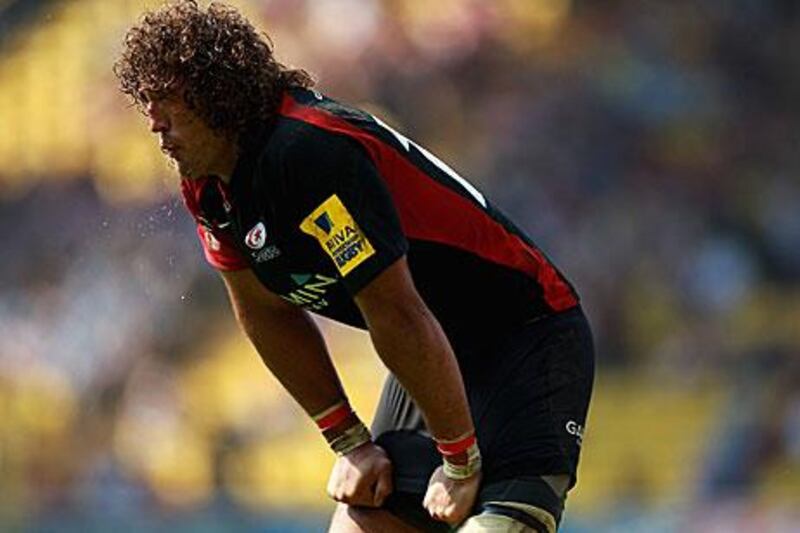If George Best, Ryan Giggs and George Weah all get mentioned in the same sentence, the gist of the conversation is usually pretty obvious: great players who have missed out on playing at a World Cup because they represented lesser-equipped nations.
Rugby World Cup
Eagles aim to rock Rugby World Cup boat
With just two wins in the six previous tournaments, Mike Petri, the United States scrum-half, says the team are counting on rival sides underestimating them.
Fast, physical and aggressive: rugby is a game much to Russia's liking. Read article
Financial aid allows Namibia players to regain focus. Read article
Challenges facing the crisis-torn Rugby World Cup hosts. Read article
[ MORE ON THE RUGBY WORLD CUP ]
Northern Ireland were the smallest country to reach a football World Cup finals, in 1958, and they acquitted themselves well, reaching the quarter-finals.
But that came about six years too early for Best, who had to become a great instead via his club career with Manchester United.
The Wales of Giggs came close to qualifying for major tournaments a couple of times, but never sealed the deal. And Weah with Liberia? As if that was ever going to happen.
The argument usually assumes each of them would have flourished if circumstance had actually pitched them - along with their lesser-talented teammates - on to their sport's greatest stage.
But that is a touch presumptuous. Sure, they each had the flair to stand out when they had Denis Law, Roy Keane or Paolo Maldini to fall back on, but what about when they were trying to trade quick passes with Joe Average at international level?
It is fair to assume the impression they might have made, had they played at a World Cup, would have been a little like dropping a diamond into the mud. They would sparkle brightly at first, then quickly find themselves submerged by the collective quagmire of inadequacy.
Jacques Burger will have a tough job proving his excellence on rugby union's global stage over the next month. The open-side flanker has been one of the standout players in the rise of Saracens as the best club in England over the past two seasons.
However, he has significantly more to work with there than he does on the international stage, where he is captain of Namibia, the lowest-ranked side in the competition.
The same goes for Mamuka Gorgodze, who has been pulling up trees in France's Top 14, where the Georgian is known as "Gorgodzilla" and is officially the league's best overseas player.
However, as indefatigable as Burger and Gorgodze are, their sides stand no realistic chance given the disparity between them and the leading nations.
The Rugby World Cup still retains a far greater imbalance between the minnows and the best, unlike in the round ball code.
The fact there are no easy games in international football may be a hackneyed cliche, but it is true. Take New Zealand, for example.
The All Whites went to last year's World Cup in South Africa with barely a smidgen of the expectations the All Blacks, their rugby-playing compatriots, will be carrying this month. Despite their lack of football pedigree, as well as being pitted into a group with Italy, the defending champions, they were undefeated despite going out at the group stage.
As in cricket's version, the Rugby World Cup is at least four teams too heavy, in terms of guaranteeing competitive matches.
The minnow nations just cannot compete. They are dotted with the odd player who could earn a living in the professional game of the top countries, such as Chris Wyles, Takudzwa Ngwenya and Todd Clever of the United States, or Davit Kubriashvili, the Georgian strongman who plays for free-spending Toulon in France.
They could even excel, like Burger has done in England and Gorgodze in France.
Or they might do something which makes them a YouTube hit, as Ngwenya did when he left Bryan Habana in his wake in 2007.
But collectively they are still years away from being capable of actually upsetting one of the genuine contenders.
Follow
The National Sport
on
[ @SprtNationalUAE ]
& Paul Radley on
[ @PaulRadley ]






